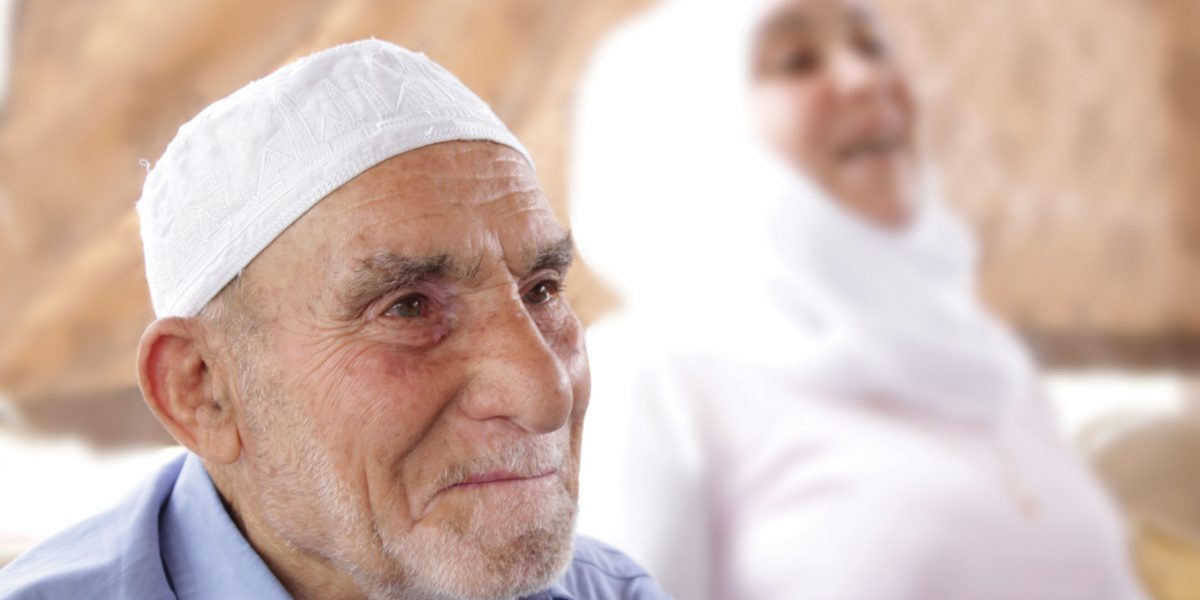Middle East: Seven years later, Syria still needs peace
15 March 2018

Beirut, 15 March 2017 – “Stop. It is the only message I would share,” says a Syrian volunteer working with the Jesuit Refugee Service (JRS) in Lebanon. The Syrian conflict is entering its 8th year, and people are still suffering. It is almost impossible to describe in words what is happening and how people are feeling, but it is more crucial than ever to talk about it.
Recently, Pope Francis highlighted the fact that the past few months have been some of the most violent periods in the entire conflict. “All of this is inhumane, one cannot fight evil with another evil,” he declared.
At a time when the Syrian people most need peace, the situation is dramatically unstable.
Damascus is under fire. All neighborhoods are being hit with mortar shells, and hundreds of people are dying. The situation on the ground is very dangerous: “death is falling from the sky, at random…and we are powerless to stop it,” declares a JRS Syria staff member. Other areas of Syria have recently been drawn into the conflict: Afrin, an area that was already hosting a very high number of displaced people, is now a place from which thousands of people are fleeing, and with nowhere to go. In eastern Ghouta, hundreds of thousands of people are trapped under fire.
After long years of conflict, living conditions are challenging, with exorbitant housing costs, high unemployment rates, and limited access to essential services such as health and education.
Borders remain closed. It is very difficult to leave Syria now, and many families have been separated and are spread out between different countries. Such is the case with Fatima, who lives in Lebanon with her daughters while her sons are living in eastern Ghouta. For 15 days her sons have not been able to leave their homes due to the current violence. Fatima used to be very optimistic, but now she is not able to smile anymore and cannot stop crying.
The case of Amira is similar. She lives in Bourj Hammoud, in a small one-room unfurnished house which she rents for €325. Her husband lives in Germany; she wants to join him with their children because they cannot afford the expensive living costs in Lebanon.
With 1.5M Syrian refugees, Lebanon is hosting the highest number of refugees per capita in the world. 76% of these refugees are living below the poverty line, and more than half are children.
Amira is so desperate that sometimes she thinks of trying to get into a boat headed for Europe, but she does not want to risk her children’s lives. More than a year ago she received a call from UNHCR confirming that her application for resettlement had been received; she is still waiting for a place. These procedures are very drawn out. Moreover, only registered refugees are eligible for resettlement; unfortunately, approximately 70% of Syrian refugees living in Lebanon are unregistered.
The Lebanese Government has made a huge effort, but its capacities are limited. After seven years of conflict, the burgeoning numbers of refugees pose many challenges to the infrastructure and economy of the country. Lebanon cannot support this burden on its own. The international community must not turn its back on a situation that requires a global approach.
The Syrian conflict is neither a revolution nor a civil war, since there are nationals of dozens of countries killing one another in Syria. It is chaos. But the victims are innocent Syrians, the people dying are Syrians, and the people fleeing are Syrians. We must listen to their voices.
The only solution to this situation is to stop looking at Syria with indifference, and demand peace. It is our duty.
JRS is calling for:
• The involved parties to stop the war and the deaths of innocent civilians.
• The international community to share responsibility for the support of Syrian refugees living in hosting countries. Syrian refugees in neighbouring countries must enjoy safety and decent living conditions.
• A guarantee of access to quality education for all Syrian children (especially access to secondary education).
• The EU and other Western countries to increase their resettlement quotas and accelerate their procedures as part of responsibility-sharing.
• The EU and other Western countries to provide additional safe and legal pathways for people fleeing persecution and conflict, such as humanitarian visas, family reunification visas, and student and apprentice visas.
At a time when the Syrian people most need peace, the situation is dramatically unstable.
